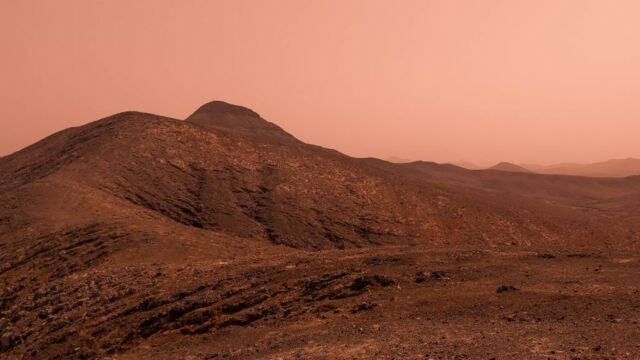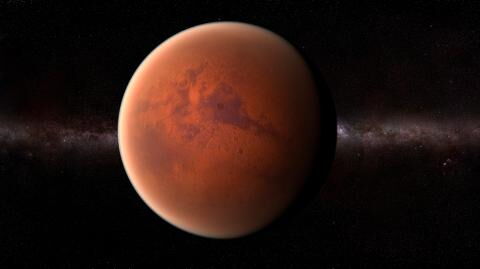In a few months' time, you may be able to add the words ‘assisted NASA on a major project’ to your CV and look your future recruiter in the eye. The US space agency has been unable to explain a strangeness that has surrounded Mars for years, and it thinks it will be able to unravel the mystery very soon. But to do so, it will need the public's help.
Discover our latest podcast
Why is Mars' atmosphere so light?
The Earth's atmosphere is almost 100 times denser than Mars'. This is strange because analyses suggest that the Red Planet's atmosphere was much heavier several billion years ago.
How can this change be explained? NASA believes that Mars loses its atmosphere at altitude. And for the past 16 years, it has been collecting data on the planet and its clouds via the Mars Reconnaissance Orbiter mission. In a press release, the agency explains:
Like Earth, Mars has clouds made of water ice. But unlike Earth, it also has clouds made of carbon dioxide (think: dry ice), which form when it gets cold enough for the Martian atmosphere to freeze locally.
By understanding where and how these clouds appear, scientists hope to better understand the structure of Mars’ middle atmosphere, which is about 30 to 50 miles (50 to 80 kilometres) in altitude
Help @nasa scientists find clouds on Mars! We're asking citizen scientists to help us identify clouds in Mars Reconnaissance Orbiter data. This may aid researchers in figuring out why the Red Planet’s atmosphere is just 1% as dense as Earth’s. Join here: https://t.co/Bk96EMIm1Hpic.twitter.com/E5EnDRc1R6
— NASA JPL (@NASAJPL) June 29, 2022
People to mark the position of clouds
So what exactly does NASA need?
We want to learn what triggers the formation of clouds – especially water ice clouds, which could teach us how high water vapour gets in the atmosphere – and during which seasons
The agency has a huge volume of infrared photographs of the planet, and tagging all the clouds visible in these images via the Cloudspotting on Mars platform would help scientists accomplish their mission. That's where you can help!
You may wonder why NASA doesn't use advanced algorithms to locate these clouds, they have actually tried to do this before but found that a human could do the job faster.
This article was translated from Gentside FR.
Read more:
⋙ NASA’s Mars rover has found ‘something unexpected’
⋙ A strange shape filmed on Mars by the Spirit Rover
⋙ A huge comet has entered the solar system and will be visible in July















